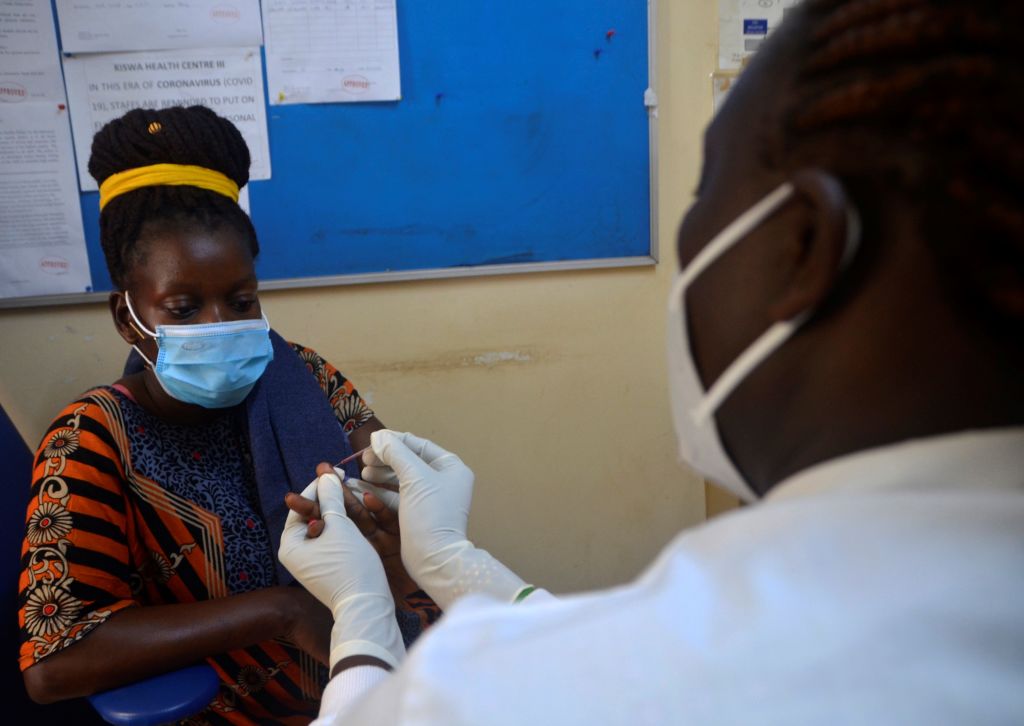
Climate change is creating ideal conditions for infectious-disease transmission and the world’s health-care systems aren’t ready for the shock it will cause, according to a new study.
After nations largely failed the stress test of Covid-19, a novel virus, decades of progress to control age-old illnesses such as malaria, dengue fever and cholera are under threat unless leaders commit to more ambitious climate plans, the Lancet said in a study Wednesday. The medical journal’s sixth annual report, named The Lancet Countdown, tracks 44 indicators of health impacts that are directly linked to climate change and highlights worsening social inequalities.
Drawing on research from 38 academic institutions and United Nations agencies, the study by the British medical journal found that the potential for viral outbreaks is increasing most rapidly in developed countries. The danger of malaria infections is rising in cooler areas, while coasts around northern Europe and the U.S. are becoming more prone to bacteria which produce gastroenteritis and sepsis.
Meanwhile, almost 600 million people are living less than 5 meters (16 feet) above sea level, which puts them at risk of increased flooding and intense storms. Many could be forced to permanently leave their homes, according to the report.
“These are grim warnings that for every day that we delay our response to climate change, the situation gets more critical,” warned Maria Romanello, a research director and lead author of the report. “It’s time to realize that no one is safe from the effects of climate change.”
Fewer than half of the 91 countries tracked in the study have a national health and climate change plan, leaving their medical sectors vulnerable to climate-induced shocks, the report said. Of the 45 nations with a strategy, only eight had allocated funds to tackle the issues raised in their assessments.
Covid-19 has caused almost 5 million deaths around the world and pushed economies to the brink. As countries loosen lockdowns in an effort to reboot their economies, many are struggling to control a resurgence in infections, worsened by an unequal distribution of vaccines between developed countries and lower-income nations.
The study found similar inequalities in the global response to climate change, with underdeveloped countries that are least responsible for rising emissions lagging in efforts to decarbonize. These nations will be hit the hardest by global warming as droughts threaten food and water security, an issue that affected 2 billion people in 2019, the report warned.
The biggest barrier to delivering resources was insufficient financing, according to 69% of the surveyed countries. But with nations injecting trillions of dollars to restart their economies in the midst of the pandemic, the report urged policymakers to “move beyond rhetoric and take action” at a UN conference in Glasgow that starts at the end of the month, where world leaders, executives and climate activists will hammer out plans to cut carbon emissions.
The study also warned against a fossil fuel-driven economic recovery that funds oil, gas and coal production, but gives limited support for clean energy. Instead, nations should create green jobs and safeguard health, the report said.
“Climate change is here and we’re already seeing it damaging human health across the world,” said Anthony Costello, executive director of the Lancet Countdown. “The recovery from Covid-19 can be a green recovery that puts us on the path of improving human health and reducing inequalities, or it can be a business-as-usual recovery that puts us all at risk.”
More Must-Reads From TIME
- The 100 Most Influential People of 2024
- Coco Gauff Is Playing for Herself Now
- Scenes From Pro-Palestinian Encampments Across U.S. Universities
- 6 Compliments That Land Every Time
- If You're Dating Right Now , You're Brave: Column
- The AI That Could Heal a Divided Internet
- Fallout Is a Brilliant Model for the Future of Video Game Adaptations
- Want Weekly Recs on What to Watch, Read, and More? Sign Up for Worth Your Time
Contact us at letters@time.com